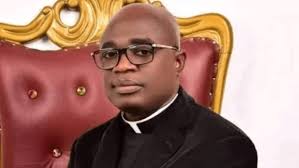A group, the Boabab for Women’s Human Rights, has joined other women organisations, groups and well-meaning Nigerians to decry the National Assembly’s rejection of the six gender bills meant to enhance women’s lives and encourage their political participation, demanding that the advancement of women be made a top agenda by approving the relevant bills.
A statement signed in Abuja by its Executive Director, Bunmi Dipo-Salami, the group called on government to end the patriarchal practices that undermine the dignity of women, urging all stakeholders to protect the present and future generations of women by demanding that the right thing be done for the Nigerian women.
The bills include the demand for special seat for women in the National and States Houses of Assembly; expansion of the scope of citizenship by registration; 35% Affirmative Action for women in political party administration and reserved quota for women (granting of 35% appointed positions for women).
According to the statement, Dipo-Salami expressed disappointment at the Ninth National Assembly, describing the lawmakers as the most unfriendly for hindering women’s growth just as they were deliberate in conducting the votes in the women’s month.
“At the commencement of the global Women’s History Month on the first day of March 2022, just few days to the International Women’s Day, 95.9% of male lawmakers at the National Assembly made history as the most unfriendly set of lawmakers when they voted against ALL the bills aimed at ensuring gender justice through the advancement of the rights of Nigerian women as full citizens.
“The gender bills proposed in the amendment of the Nigerian Constitution sought to enhance the lives of women and provide opportunities for them to participate fully in the political and governance space as well as inclusive citizenship rights,” the statement noted.
The statement further said women make up nearly half the entire country’s population, regretting that they are however underrepresented in the political space.
“Presently, only 8 out of 109 Senators are women; only 22 out of 360 House of Representatives members are women, there is no female governor, and 44 out of 990 State Houses of Assembly are women.
“As we all know, inclusivity in the public space is a fundamental aspect of modern democracy, and improved representation of women has been shown to have benefits such as improved policy changes, economic growth, and enhanced peace building,” it stated.




